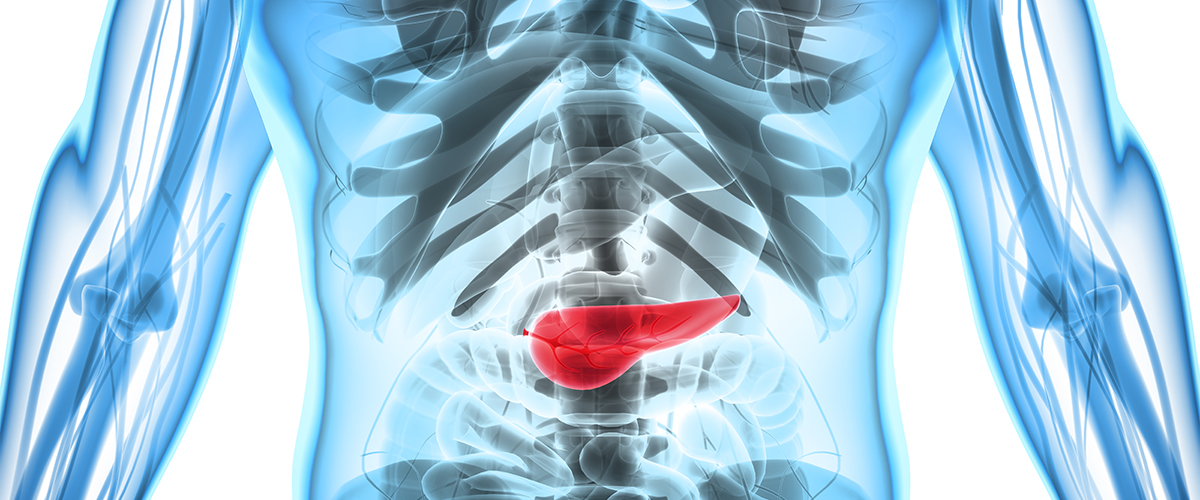[vc_row][vc_column][vc_column_text]
A new study has found that symptoms of acute alcoholic pancreatitis are less severe in those with a history of cannabis use.
Acute alcoholic pancreatitis (AAP) patients that have a history of cannabis use experience less severe symptoms compared to non-users, according to a new study published in the journal Translational Gastroenterology and Hepatology.
Acute alcohol-related pancreatitis are acute bouts of abdominal pain, nausea, and vomiting that occur in those with progressive and irreversible damage to the pancreas gland caused by prolonged hazardous drinking. Acute episodes are often precipitated by an increase in alcohol intake. In more severe cases, the condition can cause profound metabolic abnormalities and circulatory collapse.
In the new study, researchers from the Mercer School of Medicine retrospectively examined the severity of acute alcoholic pancreatitis in patients at the time they were admitted into the tertiary care teaching hospital, The Medical Center in Macon, Georgia, between January 2006 and December 2015.
To measure severity of pancreatitis, the researchers assessed blood urea nitrogen, bedside index for severity in acute pancreatitis (BISAP) score, systemic inflammatory response syndrome (SIRS), and Balthazar computed tomography (CT) scan grade.
Of the 116 total patients analyzed, the researchers identified 38 with a history of cannabis use, and 76 that tested negative for tetrahydrocannabinol (THC). The patients were then matched for sex and age.
The researchers found that the patients that had tested positive for cannabis experienced less severe manifestations of acute alcoholic pancreatitis and were less likely to need to be placed in Intensive Care Unit (ICU) compared to those that had tested negative for the substance.
“[W]e found that cannabis positive patients had less severe presentation of AAP indicating that cannabis could modulate the inflammatory effects of alcohol on the pancreas,” the researchers concluded.[/vc_column_text][/vc_column][/vc_row][vc_row][vc_column][vc_single_image image=”27642″ img_size=”full” onclick=”custom_link” img_link_target=”_blank” link=”https://www.medicalmarijuanainc.com/overview-of-medical-marijuana-research/”][/vc_column][/vc_row][vc_row][vc_column][vc_column_text]Previous studies have indicated that cannabinoids can have an anti-inflammatory effect on the pancreas. In 2013, researchers found that injected cannabidiol (CBD) reduced inflammation in the diseased pancreases of mice. A study in 2007 found evidence of cannabinoids “abolishing pain associated with acute pancreatitis and in partially reducing inflammation and disease pathology in the absence of adverse side effects.” Investigators again observed these pain relieving and pancreatic protection effects of cannabinoids in mice with chronic pancreatitis in 2014.
The endocannabinoid system’s two cannabinoid receptors, CB1 and CB2, are found in the pancreas. According to the study, their presence increases even further during an inflammatory response, allowing phytocannabinoids like THC and CBD to act on the receptors and encourage an anti-inflammatory and pain-relieving response.
Twenty-nine U.S. states and Washington D.C. have passed laws permitting cannabis use for medical purposes. The researchers suggest that cannabis use will likely increase as more states legalize the substance, subsequently increasing the need for more research.
“Studies are needed to identify and quantify the effects of cannabis on [acute pancreatitis],” they concluded. “Further, large scale studies are needed to characterize the effect of cannabis on [acute pancreatitis].”
You can access the full text of the study, “Severity and outcomes of acute alcoholic pancreatitis in cannabis users,” through the U.S. National Library of Medicine and National Institutes of Health.
Learn more about the studies that have investigated the anti-inflammatory properties of cannabinoids by visiting our education page. Keep up with the latest cannabis-related studies through our news feed.[/vc_column_text][/vc_column][/vc_row]






